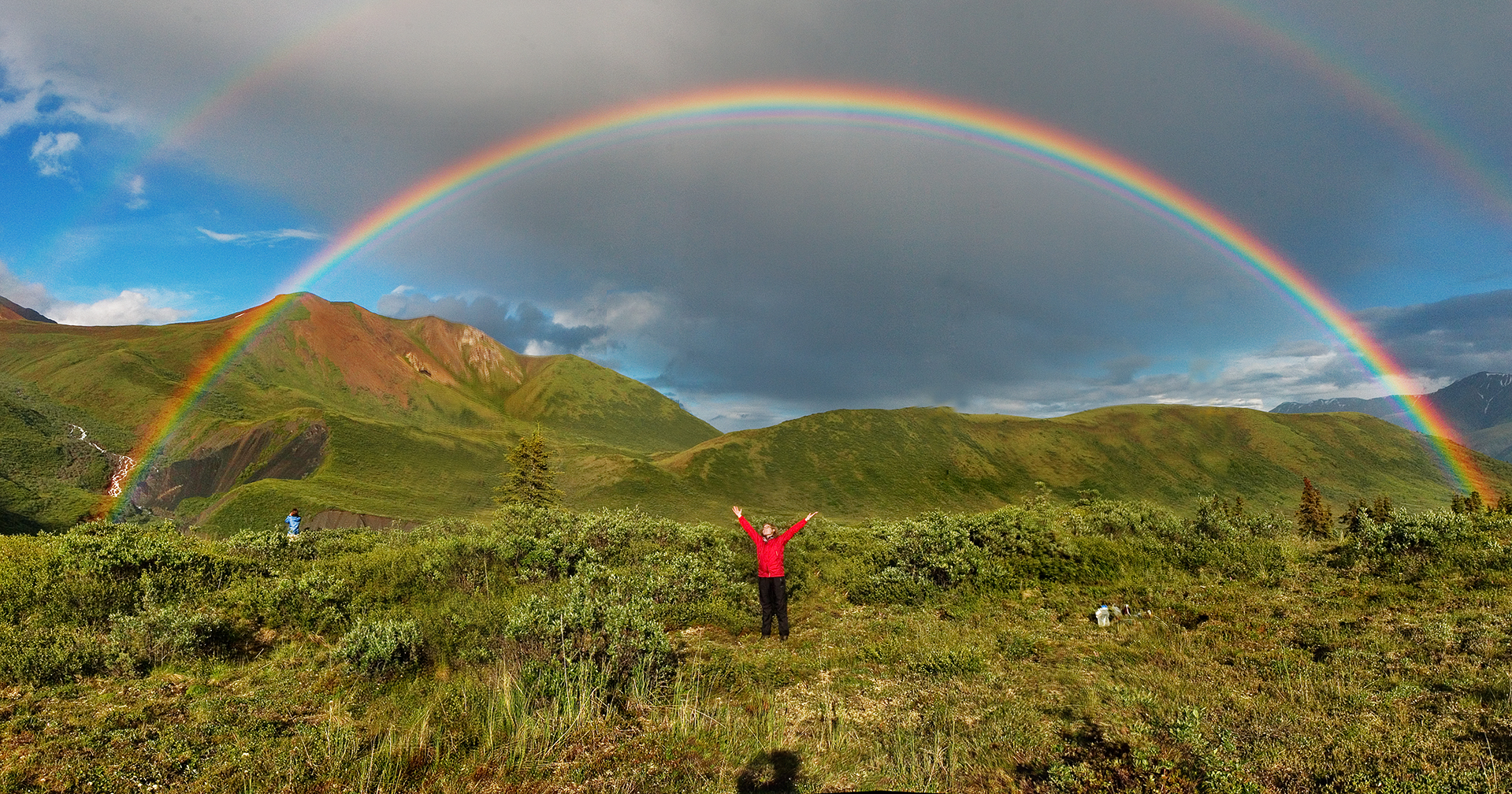It is, actually, all that matters.
Our actions now determine our future. They steepen the angle of the bend.

The Eightfold Path is the road to a moral life and liberation from suffering. If we are acting with wisdom, awareness, and ethics, then what is there to suffer about?
But liberation doesn't happen in a vacuum. While we work with our own suffering, we become more aware of the ways that others suffer. For the sake of ease in the present moment and creating a better future, we try at least not to increase that. Inevitably, I think, we seek to ease it, to help others suffer less -- not because it makes us uncomfortable to see suffering but because we see that we're all part of the same organism We are suffering and awakening together.
What we are suffering from is a disconnection from our true nature -- call it buddhanature, God, the ground of being, the universe -- and what we are awakening to is its presence in everything, us most of all. Everyone of us, without exception.
I've been contemplating justice recently -- partly springing from the events of this fall where the legal (aka justice) system did not hold white police officers accountable for the deaths of black men and the massive "social justice" movement that followed, partly because I have to lead a discussion of justice from a Buddhist perspective.
There's lots written about social justice from a Buddhist perspective* but I couldn't find a simple definition of what justice is. How Buddhist is that?
I invite you to contemplate justice, which seems like one of those things that are not easily defined but that we know. How do you know when something is just? How do you know when you see injustice? What is that based on? Is justice absolute or does it vary by the situation?
To
me, justice means treating each person as a buddha, recognizing their
inherent worth and dignity, and acting from our own. At the same time, we
need to acknowledge that humans act out of confusion or neurosis and address that, not leave to the arc of the universe or their future suffering as recompense.
We have to start with ourselves, looking for and working with our own personal biases that keep us from seeing the perfection of others. And then we have to look at social institutions -- what assumptions are they based on? What are their intentions? To protect some at the expense of others? How can we protect everyone?
David Loy, in "Money, Sex, War, Karma: Notes for a Buddhist Revolution," emphasizes the need to do that personal reflection. "If we have not begun to transform our own greed, ill-will, and delusion, our efforts to address their institutionalized forms are likely to be useless or even worse. Even if our revolution is successful, we will merely replace one group of egos with our own."**
Loy observes that Buddhism may have a particular role to play in identifying the places where our collective awareness has become trapped and showing how to liberate from those traps, just as we work with our personal attachments.
Buddhas helping buddhas out of confusion, not demonizing them.
But sitting is not enough. Ven Panavatti observes
Buddhas reaching out to Buddhas, not out of pity or in a bid to accumulate merit, just because we're all here, right now, together, bending the arc toward justice.Okay, it’s like this: When everything is good, we can sit on our cushions. When there are things to take care of, we should get up and do it. Even Buddha said it is hard for a person to make progress when he is hungry. Western Buddhists need to learn to reach before they teach.
*Here is a compendium of articles from the Buddhist Peace Fellowship on Social Justice and the Four Noble Truths
**If you want to walk through that process, I recommend bell hooks' "all about love: new visions."
No comments:
Post a Comment